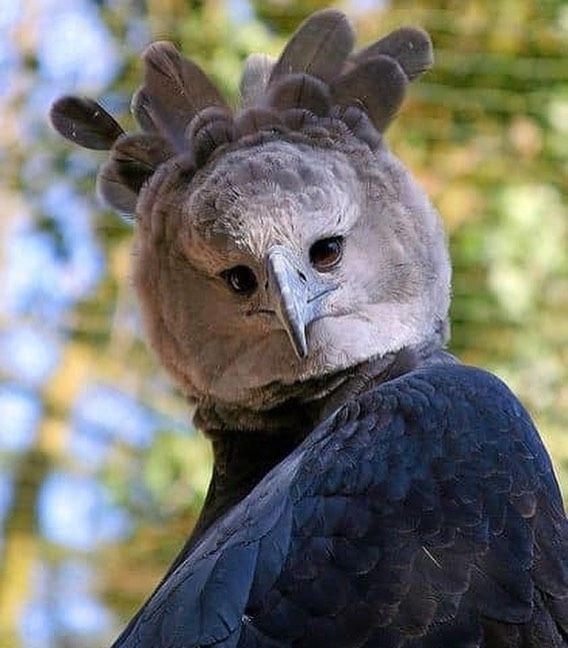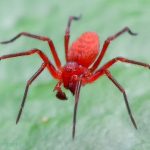#Culture
Day of the Dogs, Part 5: Sorceress of the Forest
The eagle perched on one of the upper branches. It was a bizarre looking creature, and made him think of a child wearing a dark cloak and a mask.
Published

See the Story Index for Wael Abdelgawad’s other stories.
This is chapter 5 in a multi-chapter novella. Chapters: Chapter 1 | Chapter 2 | Chapter 3 | Chapter 4 |
“You must overcome your fear.” – Mamá
Home Alone
Keep supporting MuslimMatters for the sake of Allah
Alhamdulillah, we're at over 850 supporters. Help us get to 900 supporters this month. All it takes is a small gift from a reader like you to keep us going, for just $2 / month.
The Prophet (SAW) has taught us the best of deeds are those that done consistently, even if they are small. Click here to support MuslimMatters with a monthly donation of $2 per month. Set it and collect blessings from Allah (swt) for the khayr you're supporting without thinking about it.
OMAR WAS RELEASED FROM THE HOSPITAL two weeks after the attack. Nemesio was gone, and that was a barakah as great as a cloud. The miserable man had taken his things and disappeared, leaving behind only a scattering of old papers and business magazines in the drawers of Omar’s old desk – the desk that Nemesio had appropriated for himself. Omar was going to throw them out but Mamá said no, put them in a box and store it in the closet. Shaking his head, he did so. He did not tell Mamá about the ultimatum he’d given Nemesio.

Mamá was melancholy, but Omar tried to reassure her, telling her, “Whatever Nemesio stole is a small price to be rid of him.” After that they did not speak of him again.
Omar could finally breathe. Mamá’s mood too improved as the days passed, and he saw her smiling and laughing for the first time in years.
* * *

Hospital Nacional, Panama
Mamá had to go back to her job at Farmacias Arrocha. She’d taken time off after the Day of the Dogs, but couldn’t afford to miss any more work.
On the three days a week when Omar had physical therapy, he took a taxi to Hospital Nacional and back. He got to know many of the nurses and orderlies by name. There was one nurse, an Afro-Latina woman named Leticia, who told Omar he reminded her of her younger brother, who had gone to New York for university. She often brought him chips or brownies from the hospital cafeteria.
There were days when Omar felt like the ugliest kid alive, with the scars on his face and his limp, and his hair that had still not fully grown in. He looked, he thought, like a gang member. Or an accident victim, which he was, in a way. Then Leticia would come along and give him a wide smile and say, “How’s my favorite young man today? Oh look at you, your hair is coming in curly like Eric Dane. And your scars are fading, I can barely see them. The ladies are going to fall at your feet!” And even though Omar knew it was half baloney, he would stand a little straighter, and his heart felt lighter.
When he wasn’t at the hospital, he was home alone.
In past summers, he’d avoided the house during the day, because Mamá was at work and he never knew when Nemesio might be there. He’d spent his days reading at the library, playing football in the street, taking classes at the dojo, and sometimes visiting the masjid.
So being home alone was a new experience. At first he loved having the whole house to himself. He could limp around in his underwear, turn the mop bucket upside down and pound it like a drum, or soak in the bath for an hour, reading a sci-fi novel. He could watch football with the volume turned up, and eat as much microwaved popcorn as he liked.
Once the novelty wore off, however, he realized he was lonely. Entire days passed where he neither saw nor spoke to another human being. His mother had purchased him a basic phone, a little flip-model with talk and text only, but he didn’t know anyone’s numbers except his mom at work and the taxi service. He found himself watching the clock, waiting for Mamá to come home. When she finally did walk through the door, he often didn’t want to talk to her. She’d end up throwing her hands in the air and walking away, and he’d be lonelier than ever.
Beetle Season
He lay on his back in the dark. It was storming outside, the power was out, and the house was hot. Perspiration beaded his forehead and glued his back to the sheets. The digital clock on his nightstand was dead, but Omar knew it was past midnight. The window was a meter from his bed; one of the geckos that gathered on the outside of the glass, eating mosquitoes and termites, startled him by calling out loudly: “DAP dap dap dap dap dap dap dap.”
He could smell the sickly-sweet strawberry air freshener that his mother sprayed in her room to help her sleep. Soothed her nerves, she said. Strawberries didn’t grow in Panama, and Omar was not sure he had ever seen one. Did his mother’s air freshener really smell like strawberry, or just some manufacturer’s chemical imitation?
It was beetle season and the creatures were everywhere, to the point that he could sometimes hear them scurrying about his room at night. There were common black beetles, striped beetles, huge brown hercules beetles, and once he’d even seen a golden beetle, gleaming in the dark. He’d once seen a TV show about Bogotá’s Museo de Oro, and the beetle looked like one of those golden artifacts, come to life.
Sometimes a beetle would end up helpless on its back and the ants would swarm out and devour it. Omar knew the feeling.
Sleep was a torment. No matter which side he lay on, there was pain. He spent many summer nights like this, staring up at the ceiling, trying to think of something other than the throbbing of his wounds. All too often he found himself reliving the Day of the Dogs. What if he hadn’t gone? What if he’d forced Tameem to stop hassling the dogs? What if they’d taken a different route? Why had no one helped him? Was he stupid for trying to fight those two dogs alone? But what else could he have done?
He’d told Hani that the past was gone. A lo hecho, pecho. But he couldn’t silence the self-recriminations, especially at night, when his body was exhausted and in pain. Ramadan was here, but he could not fast, and that shamed and angered him. He had not missed a Ramadan fast since he started at eight years old. He was in and out of the hospital, going through one procedure after another. A physical therapist worked with him three days a week, putting him through stretching and strength-building exercises. Omar wanted to know when he could resume karate training. The doctors said years, possibly.
Pain stalked his days and haunted his nights. It was a strange thing, to live with constant pain. He felt stretched out, like a rubber band about to break. He couldn’t concentrate, and was irritable all the time.
The doctors prescribed pain medication, but Omar remembered Toyo, a short, beefy man with the images of Catholic saints tattooed on his fingers. He’d been a brown belt at the dojo, one level above Omar at the time. Toyo had been tough, not only in the dojo but in life. One of those guys who grew up scrapping. Then he had a motorcycle accident and injured his back. In the wake of that he became addicted to painkillers, and when the doctors cut him off he switched to street drugs, so it was said. Omar watched Toyo waste away week by week until his skin hung on his frame like wet laundry on a line. Then he stopped coming. Some said he was living on the street. Others said he’d gone back to Santiago, where his grandparents were from.
Omar never wanted that to happen to him, so he took the medications only when the discomfort became severe.
Other times, when the sun was shining and his pain was dulled, he felt confident, and knew that he had done exactly what he had to do that day, and that Allah would take care of him, and guide him where he must go.
This was not one of those times. Lying there in his bed, sweating like a runner in a relay race – except that he couldn’t run, and had no one to pass the baton to – he felt like his breath was trapped within him, unmoving, growing hotter by the moment. He needed to cool down. He should get up, rinse the sweat off and splash some cold water on his face.
Stiffly, painfully, he swung his legs over the side, began to walk toward the bathroom – and stepped on something living. It crunched wetly beneath his foot, but before it died, it bit him. He gave a muffled groan – Nemesio’s fist-first training against crying out loud still in effect – and sat on the floor. He’d stepped on a beetle, of course, and though it was nearly obliterated, a few of its legs still twitched, and its antennae waved. Omar’s foot pulsed with pain.
Sitting there on the floor in the lightless room, with the rain finally beginning to tire of its assault, Omar cried.
E-Commerce For Idiots
A Saturday morning in July. He sat at the kitchen table, poring over a book titled, “E-Commerce for Idiots.” Mamá was trying to expand her makeup business. She’d always bought goods imported from Hong Kong and South Korea, but she’d recently started her own line of organic makeup, made from sustainable Panamanian forest products. She called it Puro Panameño.
The problem was that Puro Panameño products were expensive, because of the cost of sourcing the ingredients. Mamá’s usual customers were working class Panamanian women who could not afford these products. She had to find a way to reach middle and upper class women.
Mamá thought an ecommerce website would be the key, so here Omar sat, in a kitchen that looked like a storeroom, with boxes filled with raw ingredients, bottles, shipping labels and packaging stickers. His mother, who had the day off work, sat on the floor, cutting boxes open. She wore black sweat pants and a colorful Kuna blouse, hand-woven with a striking mola in the shape of a fish. Bits of cardboard clung to her long black hair. Her face was tired and sweaty.
Eventually she’d have to lease a proper manufacturing space, but they were a long way from that. Orders were barely trickling in. It was deeply discouraging.
Omar was trying to figure out how to place an advertisement on a social media website, and target it to a specific group of Panamanian viewers. He sat back and exhaled loudly, running his fingers through his curly hair, which had finally grown back after being shaved in the hospital.
His mother looked up. “You want something to eat?”
“What do we have?”

Omar grimaced. If he ate any more tuna he’d grow fins. Between the funds Mamá had invested in these new products, and the cash Nemesio had stolen, they were broke, with hardly enough money for food.
Staring through the barred window, watching a man selling single cigarettes in the street outside their home, his eyes wandered over their little yard, with its neat flower beds that his mother had planted, and the wide acacia tree that shaded the house in the mornings. Though his eyes were on the tree, his mind was elsewhere. He still received phone calls from reporters wanting to interview him. He’d always declined, partly because he didn’t have the energy, and partly because it was intimidating. What if his tongue got tied? What if he ended up looking foolish?
War or Death
Suddenly his eyes focused on the tree, and what he was seeing there. His mouth fell open in astonishment. His mother, busy with her work, did not notice. Omar closed his mouth, opened it again. “Mamá,” he said. “The tree. Look, Mamá.”
“Is it the neighbor’s cat again?” she said testily. “The silly thing can stay up there for all I-”
“No,” Omar broke in. He grabbed his cane and stood, pointing. “It’s a harpy eagle.” He gaped at it. The national bird of Panama. According to Brother Mamdooh, his biology instructor, there were only two hundred breeding pairs in all of Panama.
The eagle perched on one of the upper branches of the acacia, partly hidden in the foliage. It was looking off to the north, so he saw it in profile. The creature was massive, maybe 100 centimeters tall, with a gray head and a long, hooked beak, and wearing a tall gray crest. The upper body was charcoal gray, the belly white, and the massive black legs sported curved black talons the size of meat hooks.
He’d seen photos, of course, but had never imagined he’d see one in person. It was a bizarre looking creature, and made him think of a child wearing a dark cloak, a hood and a mask. A chill ran up his spine, and he shivered.
His mother leaped to her feet, scattering a pile of small metal canisters filled with pigments. She looked where Omar was pointing, then put a hand to her face, half covering her eyes. “La curandera del bosque,” she breathed. The sorceress of the forest. “Don’t look at it!” She reached out and put a hand over Omar’s eyes.
He pulled away, grinning. “What are you doing?” He looked back at the harpy and now it was gazing directly at him. It gave a loud squawk, and Omar had the sense that it was in fact speaking to him, communicating something.
His mother cried, “No!” then ran to the window and pulled the cord to drop the blinds, cutting off the view of the eagle. She said, “La ilaha il-Allah,” then sat at the table, closed her eyes and began to chant, rocking back and forth. She spoke in Ngäbere, the language of her people, and Omar could only understand a few words.
He sat beside her, gripped her forearm. “Mamá! What’s wrong?”
When she opened her eyes, they were liquid with fear. “The águila arpía is the curandera del bosque. She is the queen of the forest, while the jaguar is the king. When the curandera speaks, it means war is coming, or death, or both.”
Omar shook his head. “We’re Muslims. We don’t believe in all that. Second, I’ve already been to war. I faced death and survived.”
Mamá’s eyes, locked on his, went wide with surprise. “You might be right.” She jumped up again, and opened the blinds. The eagle was gone. Omar watched with amazement as his mother dashed into her bedroom and came out with her sneakers. She almost never wore these. She slipped them on, tied a scarf around her hair, and ran outside. Omar followed as well as he could, limping and leaning on his cane, and found her walking around the base of the tree, looking at the ground. Then, to his further amazement, she reached up for a branch, dug her sneaker toes into an old knothole in the tree trunk, and began to climb.
“Mamá! You’ll fall.”
She made no reply, but continued to climb, and in fact she moved with swift agility, as if she’d been clambering up trees all her life. Her small form moved higher, until she reached the branch where the harpy had been sitting. After a moment she cried out in triumph.
When she dropped to the ground she held up a single long feather, gray with black stripes. Her face bore a wide smile. “You were right. La curandera left this as a gift, in honor of your courage. But it is also a challenge.” She held out the feather.
Omar took it. The feather was half as long as his forearm. “What’s the challenge?”
“You must overcome your fear. Then your status as a warrior will be acknowledged by the jaguar and eagle throne, and you will be ready for the crown.”
“What crown?”
“You are nobility, remember? My father is king of the Ngäbe.”
“Oh yeah. But isn’t there, like, a whole gang of people in line in front of me? And aren’t you exiled?”
His mother gave a noncommittal grunt. “Yes, that is a problem.”
“What am I supposed to overcome my fear of, anyway?”
“That is for you to decide. I want you to wear the feather around your neck always. It will protect you.”
“We don’t believe that, Mamá. Only Allah can protect us.” Seeing the look of dismay on his mother’s face, he added, “I’ll frame it and hang it on my wall. Not for protection, just decoration.”
She seemed satisfied with that.
All this reminded Omar of something. “When I was in the hospital, I had a dream of an old woman who sang over me and gave me something bitter to drink. A Ngäbe woman.”
“It was not a dream. She was a krägä bianga. She healed you.”
“The doctors healed me.”
Mamá shook her head. “The krägä bianga healed you. The doctors helped.”
Like Father, Like Son
“How do you people get my number?” Omar’s mother said into her mobile phone. “He’s not interested. Do you know how many-”
“Let me.” Omar took the phone. The man on the line was from La Prensa. He wanted to conduct an in-person interview and take photos.
“Will you pay us?”
“No. We don’t do that. We feel it compromises the integrity of the interview.”
Omar thought. The memory of the harpy eagle, and the challenge it presented, was still bright in his mind. He must overcome his fear, his mother said. He’d avoided publicity so far, but he had an idea. Maybe there was an opportunity here.
“I’ll do it.”

From there the questions became more personal. Omar’s childhood and parents. When Omar explained that his father had been killed trying to stop a robbery, the reporter seemed pleased and excited. Omar stiffened with anger. The reporter must have sensed this, because he began to stammer. “I mean, it’s a tragedy of course…”
Finally came the question Omar had hoped for. When the reporter asked him how he was spending his time this summer, he said, “I’m helping my mom with her organic makeup company, Puro Panameño. It’s the best makeup in the world, made right here in Panama.”
Two days later, his mother came home from work with two copies of La Prensa. She layed one out on the kitchen table and they looked at it together. Omar’s story was on the front page. The headline read, “Like father, like son: a family of heroes.” Thumbnail photos of Omar’s face and Papa’s face stood side by side. Omar broke into tears. Why had they done that? He went to his room, and did not read the article. Later, he wasn’t even sure why he’d cried. It just caught him off guard, he guessed.
Nevertheless, when a female reporter from El Siglo called on the house phone the next day, Omar spoke to her and let her interview him over the phone.
That same day he received a call from TVN Noticiera Estelar, one of the most popular news shows in Panama. This was the first news outlet that actually offered to pay him.
The day before the interview Mamá pressed a suit that she had purchased for Omar for this occasion. Where she found the money he did not know.
Off With His Head
That night he could not sleep at all. His left leg throbbed and ached, and his many scars itched like wildfire. The doctors said the itching was a normal product of healing, and that he must not scratch the wounds, but the sensation drove him mad sometimes. Finally he could not take it. Rising in the dark, he took one of the pain pills the doctor had given him, downed it with a glass of warm tap water, and went back to bed.

The Ruby spiders massed on his chest, gathering in a V formation, their cilia-covered bodies glistening with his blood. He saw that some had the heads of hedgehogs, and others of flamingos, but no matter what their eyes were all insect eyes, black and mirrored, and all focused on Omar’s face.
The largest spider stepped to the point of the formation. On its back it bore the shape of a red heart, the kind from a playing card. Pointing one hairy arm at Omar’s face, it cried, “Off with his head!” Its voice was thunderous, rattling Omar’s teeth. At the command, all the spiders produced axes. They were all hooded now, like executioners, and they advanced on Omar’s neck, coming to chop off his head.
He fell out of bed, panting as if he’d run a race, his stomach heaving like he might throw up. He remained on his hands and knees on the tiled floor, gasping for breath, his body drenched in sweat. When would the dreams stop? He shouldn’t have taken the pain medication. “Hasbun-Allahu wa n’em Al-Wakeel,” he said out loud. Allah is sufficient for us and is the best Protector. He felt a sudden urge to call Samia, which was ridiculous. It was the middle of the night, he didn’t have her number, and they weren’t even friends. Not really.
He rose, washed his entire upper body at the small bathroom sink, and changed the sweat-soaked sheets. His body hurt, but he could tolerate it. He would be okay. “A giant,” Samia had called him once. “You may be short,” she’d said, “but you’re a giant.” He’d be okay. And he’d never read that damned Alice in Wonderland book again.
Next: Day of the Dogs, Chapter 6: The Curious Sensation of Pity
Reader comments and constructive criticism are important to me, so please comment!
See the Story Index for Wael Abdelgawad’s other stories on this website.
Wael Abdelgawad’s novels – including Pieces of a Dream, The Repeaters and Zaid Karim Private Investigator – are available in ebook and print form on his author page at Amazon.com.
Keep supporting MuslimMatters for the sake of Allah
Alhamdulillah, we're at over 850 supporters. Help us get to 900 supporters this month. All it takes is a small gift from a reader like you to keep us going, for just $2 / month.
The Prophet (SAW) has taught us the best of deeds are those that done consistently, even if they are small. Click here to support MuslimMatters with a monthly donation of $2 per month. Set it and collect blessings from Allah (swt) for the khayr you're supporting without thinking about it.
Wael Abdelgawad's novels can be purchased at his author page at Amazon.com: Wael is an Egyptian-American living in California. He is the founder of several Islamic websites, including, Zawaj.com, IslamicAnswers.com and IslamicSunrays.com. He teaches martial arts, and loves Islamic books, science fiction, and ice cream. Learn more about him at WaelAbdelgawad.com. For a guide to all of Wael's online stories in chronological order, check out this handy Story Index.


Cultivating A Lifelong Habit Of Dua In Children

When to Walk Away from Toxic Friends | Night 9 with the Qur’an

My First Ramadan As A Convert: The Lengths Small Acts of Kindness Can Go

What Islam Actually Says About NonMuslim Friends | Night 8 with the Qur’an

Ramadan, Disability, And Emergency Preparedness: How The Month Of Mercy Can Prepare Us Before Communal Calamity

30 Nights with the Qur’an: A Ramadan Series for Muslim Teens

How to Make this Ramadan Epic | Shaykh Muhammad Alshareef

[Podcast] The Parts of Being an Imam They Don’t Warn You About | Sh Mohammad Elshinawy

[Podcast] Guardians of the Tradition: Muslim Women & Islamic Education | Anse Tamara Gray

Starting Shaban, Train Yourself To Head Into Ramadan Without Malice

When to Walk Away from Toxic Friends | Night 9 with the Qur’an

What Islam Actually Says About NonMuslim Friends | Night 8 with the Qur’an

Week 1 in Review: Is Your Teen Actually Changing? | Night 7 with the Qur’an

Why Your Teen Wants to Change Their Muslim Name | Night 6 with the Qur’an

The Comparison Trap | Night 5 with the Qur’an
Trending
-
#Islam1 week ago
30 Nights with the Qur’an: A Ramadan Series for Muslim Teens
-
#Current Affairs1 month ago
[Podcast] Should Muslims Ally with Conservatives or Progressives? | Imam Dawud Walid
-
#Islam4 weeks ago
How to Make this Ramadan Epic | Shaykh Muhammad Alshareef
-
#Life4 weeks ago
[Podcast] The Parts of Being an Imam They Don’t Warn You About | Sh Mohammad Elshinawy











Fan
September 26, 2020 at 9:53 PM
Thank you for all your stories. I’ve read all your stories on MM for years and I’m sorry for just making a comment. You’re an amazing writer Akhi. May Allah elevate your ranks, keep your feet firm and make your loved ones successful Muslims both in this Dunya and the akhirah.
Wael Abdelgawad
September 27, 2020 at 2:10 AM
“Fan,” thanks so much for finally commenting! Don’t be a stranger, feel free to comment anytime. Ameen to your dua, and same for you.
To be honest, I was afraid this story might not be as engaging because there’s not much “action” in it like in the Hassan’s Tale series. I mean there’s the dog attack, but it’s mostly just about a boy coming to terms with who he is, and learning his own inner strength.
Aisha
September 27, 2020 at 3:54 PM
This story definitely is well written
The main character is very relatable and his struggles and nightmares are so real. I am a humble reader of stories, not a critique or writer myself. But I can say I absolutely love the way you have weaved culture into the story, which is a huge plus point from me. Looking forward to the next part.
Wael Abdelgawad
September 27, 2020 at 10:50 PM
Thank you sister Aisha. The “spiniflex rubirosa” nightmare was one of my own dreams. I never invent dreams for my stories. I just use mine, which I write down in a journal.
Umm and Abu Aasiyah
September 27, 2020 at 4:33 PM
Aameen ya Rabbi to everyone’s dua.
Brother Wael, thank you so much for writing this. Jazak Allahu khairan. We love the story of Omar. To me it feels strengthening, and the message I get is with tawakkul, hardship becomes ease. And Allah is always with us.
My husband and I love all your stories and in sha Allah when our kids are big enough, they can read them too.
Please keep writing in sha Allah, we’re looking forward to the next installment!
Wael Abdelgawad
September 27, 2020 at 10:50 PM
Oh good, I’m so glad you are both enjoying it.
KJ
January 16, 2021 at 1:20 PM
As-salaamu ‘alaikum,
Interesting read, maa shaa Allah. A lot to think about.
Two noticings: 1. Did you mean “Mama was melancholic”, not “melancholy”?; 2. In one of the previous chapters, Omar mentioned that he didn’t read Alice in Wonderland. It was in an instance when Samia was mentioning believing in six impossible things. However, this chapter’s ending seems to indicate that Omar did read the book.